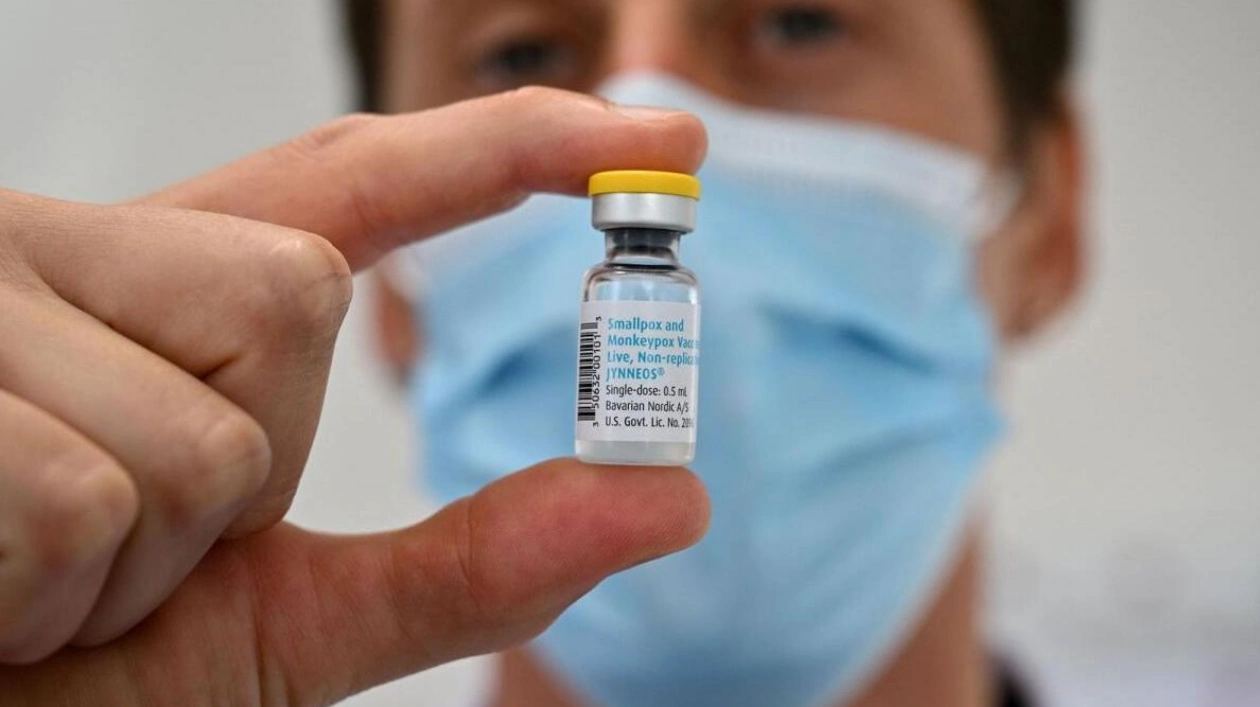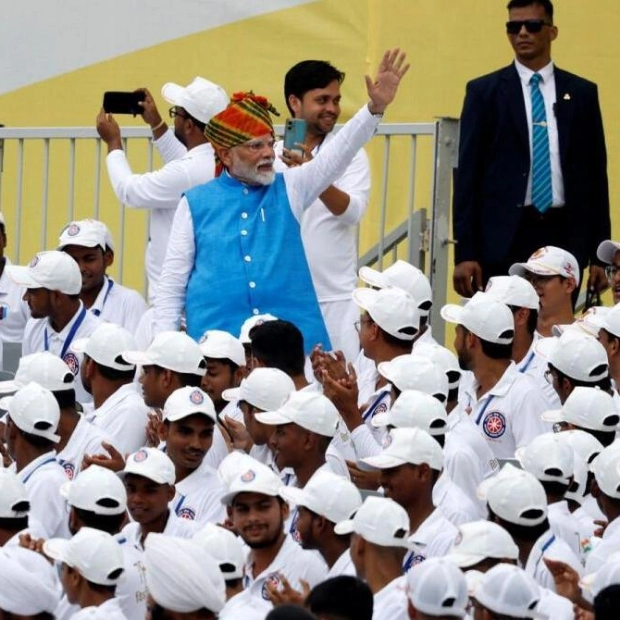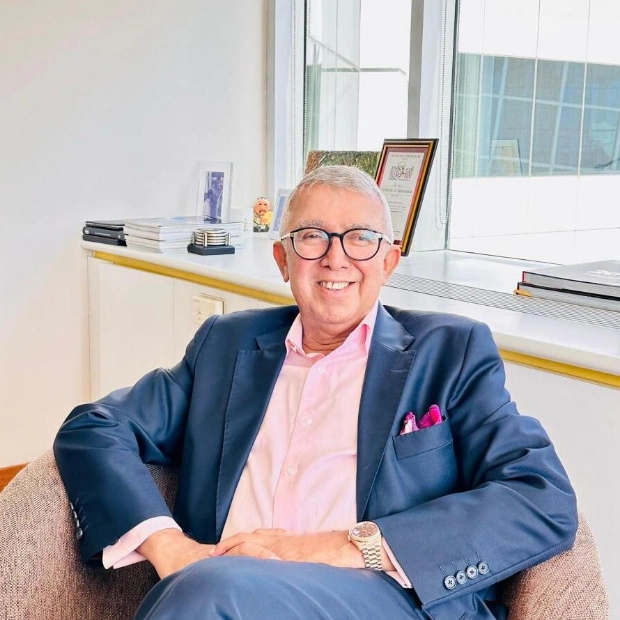The first batch of 10,000 mpox vaccines is set to arrive in Africa next week, amid global concern over a new, dangerous strain of the virus that has been affecting the continent for decades. The delayed distribution of these vaccines, already available in over 70 countries outside Africa, underscores the slow progress in addressing global health disparities, according to several public health officials and scientists. Key challenges include the World Health Organization (WHO) only recently initiating the process to facilitate poor countries' access to large quantities of vaccines through international agencies, a process that could have started years earlier, according to multiple officials and scientists.
Mpox, a potentially fatal infection characterized by flu-like symptoms and pus-filled lesions, spreads through close physical contact and was declared a global health emergency by the WHO on August 14 following the proliferation of the new clade Ib strain from the Democratic Republic of Congo to neighboring African countries. In response to delays in vaccine deployment, the WHO announced it would streamline some procedures to expedite access for poor countries. Direct purchase of the costly vaccines remains unfeasible for many low-income countries, with two main vaccines available from Denmark's Bavarian Nordic and Japan's KM Biologics, priced at $100 per dose and an unknown cost, respectively.
The lengthy wait for WHO approval for international agencies to procure and distribute the vaccine has led African governments and the Africa Centres for Disease Control and Prevention (CDC) to seek donations from wealthier nations, a process that can falter if donors prioritize their own populations. The initial 10,000 vaccines, donated by the United States, are not part of the UN system. Helen Rees, a member of the Africa CDC's mpox emergency committee, expressed outrage at Africa being left behind again after struggling to access vaccines during the COVID-19 pandemic.
In 2022, following the spread of a different mpox strain outside Africa, smallpox vaccines were quickly repurposed and used in approximately 70 high and middle-income countries. These vaccines have protected 1.2 million people in the United States alone, according to the CDC. However, no vaccines have been available in Africa outside clinical trials, primarily due to the need for WHO approval before public health groups like Gavi, the Vaccine Alliance, could purchase them. Gavi, which assists poorer countries in acquiring vaccines, administered a global scheme during COVID-19 and has up to $500 million allocated for mpox vaccines and logistics.
The Africa CDC estimates that 10 million doses may be required across the continent. However, the WHO only recently requested vaccine manufacturers to submit information needed for an emergency license, urging countries to donate vaccines until the process is finalized in September. The WHO is collaborating with Congolese authorities to develop a vaccination plan and has allowed Gavi to initiate talks while finalizing its emergency approval. Sania Nishtar, CEO of Gavi, highlighted the WHO's efforts to expedite approvals and improve funding as a positive step compared to the COVID-19 response.
The WHO's role in approving medical products has significantly impacted supply in low-income countries, though it has faced criticism for its slow pace and complexity. The agency lacked sufficient data during the last mpox emergency in 2022 to initiate an approval process and has been working with manufacturers since then to assess whether available data justified approval. Mpox, with multiple strains, has caused 99,000 confirmed cases and 208 deaths worldwide since 2022, likely an underestimate due to underreporting. Infections have been controlled in wealthy regions through a combination of vaccines and behavioral changes among high-risk groups.
The new clade Ib variant appears to spread more easily through various close contacts, including among children and through sexual contact among heterosexuals. Congo currently faces the highest impact, with over 27,000 suspected cases and 1,100 deaths since January 2023, primarily among children. The first 10,000 vaccines, donated by the United States, are destined for Nigeria, not Congo, following years of negotiations. Nigeria has reported 786 suspected cases this year with no deaths. The Nigerian health ministry did not respond to requests for comment, while the US Agency for International Development (USAID) stated it has donated 50,000 doses to Congo, with an unspecified arrival date.
Congo's government, dealing with conflict and multiple disease outbreaks, has yet to officially request vaccine supplies from Gavi and took months to engage with donor governments. Its medicines regulator approved the two main vaccines in June. Bavarian Nordic and Congo are still discussing pre-shipment requirements to ensure proper storage and handling, with the vaccines needing to be kept at -20C. In eastern Congo, over 750,000 people living in camps after fleeing conflict include Sagesse Hakizimana and his mother Elisabeth Furaha, who are among those affected by mpox.
Questions remain about how to effectively use the vaccines: Bavarian Nordic's vaccine is only available for adults, while KM Biologics' vaccine can be given to children but is more complex to administer. Scientists have not yet agreed on which groups should be prioritized for vaccination, likely adopting a ring vaccination strategy focusing on contacts of known cases. Public health measures like awareness raising and improved diagnosis are also crucial in controlling the spread of mpox, alongside vaccines.
Global health experts suggest the WHO and others should have earlier focused on enhancing access to mpox vaccines, tests, and treatments. Ayoade Alakija, co-chair of a global health partnership aiming for a more equitable mpox response, noted that the WHO can only prioritize what its member states desire, highlighting the world's tendency to overlook diseases primarily affecting black and brown people. The WHO urges all partners, including countries, manufacturers, and communities, to mobilize efforts, increase vaccine donations, reduce prices, and provide necessary support to protect at-risk populations during this outbreak.
Jean Kaseya, head of the Africa CDC, is working to involve African vaccine manufacturers to boost supply and lower prices, though this will take time.






